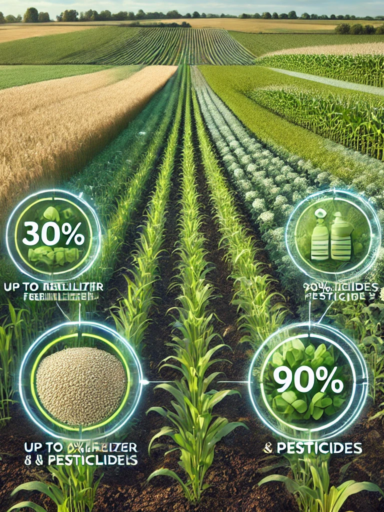Zucchinis are a staple in many households worldwide, and they’re not only tasty (if you cook them right) but they also have a significant socio-economic impact.
Agricultural Importance
Zucchinis are an important crop in many agricultural economies. Their relatively short growing season and high yield make them an attractive choice for farmers. They are grown extensively in regions with suitable climates, such as the Mediterranean, parts of the United States, and Central America. The cultivation of zucchinis supports numerous jobs in the agricultural sector, from planting and harvesting to packaging and transportation.
Farmers benefit from zucchinis due to their resilience and ability to grow in various soil types, which reduces the risk of crop failure. This stability can provide a steady income for small-scale farmers, contributing to rural economic development and reducing poverty levels in farming communities.
Market Dynamics
The demand for zucchinis has grown significantly over the past decades, driven by their nutritional benefits and popularity in health-conscious diets. As a nutrient-rich vegetable, zucchinis are a favorite among consumers looking to maintain a healthy lifestyle. This increased demand translates into economic opportunities across the supply chain, from farmers to retailers.
In the market, zucchinis are often sold fresh, but there is also a substantial market for processed zucchini products, such as zucchini noodles, chips, and even zucchini-based baked goods (<<<zucchini brownies). The value-added products increase the economic value of zucchinis, providing additional income streams for businesses involved in processing and distribution.
Economic Implications
The economic implications of zucchinis extend beyond the agricultural sector. The trade of zucchinis contributes to the economies of both exporting and importing countries. For example, Mexico is a significant exporter of zucchinis to the United States, with the trade supporting jobs and economic activity in both countries.
Moreover, zucchinis’ role in local food systems promotes food security and sustainability. Locally grown zucchinis reduce the need for long-distance transportation, lowering carbon footprints and supporting local economies. Farmers’ markets and community-supported agriculture (CSA) programs often feature zucchinis, connecting consumers directly with local growers and fostering economic resilience in communities.
Challenges and Opportunities
Despite their economic benefits, zucchini production faces challenges such as pest infestations, climate change, and market volatility. Farmers must invest in sustainable farming practices and pest management strategies to maintain yields and profitability. Additionally, fluctuations in market prices can impact the stability of incomes for those involved in the zucchini supply chain.
However, there are opportunities for innovation and growth. Advances in agricultural technology, such as precision farming and improved pest-resistant varieties, can enhance zucchini production. Furthermore, the rising trend of plant-based diets and interest in exotic zucchini varieties (like yellow and round zucchinis) present new market opportunities.
Zucchinis play an important role in the socio-economic landscape, supporting agricultural communities, contributing to local and international markets, and promoting food security. By understanding the socio-economic impact of zucchinis, we can appreciate their importance beyond the kitchen, recognizing their value in fostering both livelihoods and economic growth. As consumers, supporting local zucchini growers and sustainable farming practices can help ensure the continued positive impact of this humble vegetable on our economy and society.
And if you made it to the end of this –
What did the zucchini say to the tomato at the salad bar?
Lettuce romaine friends!




